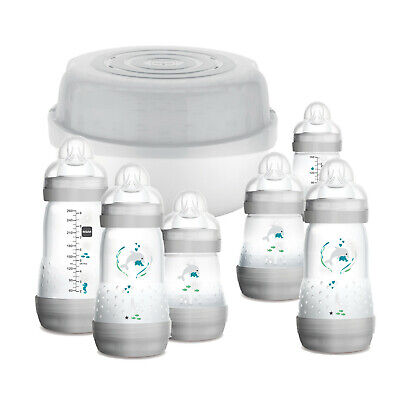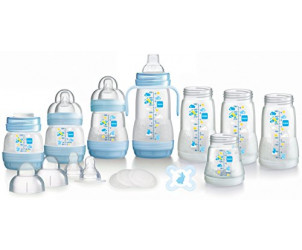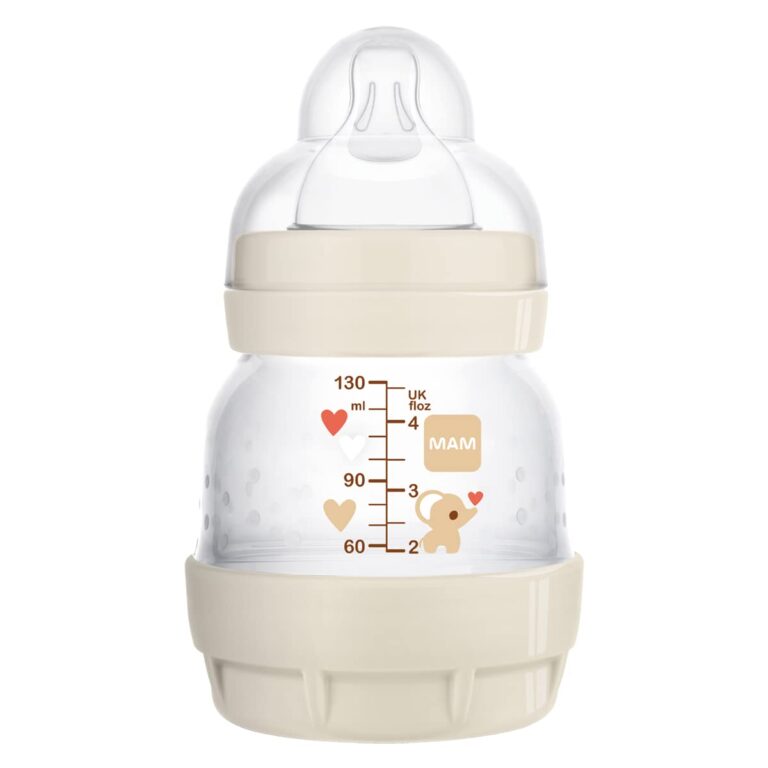There has been an ongoing debate for years about the best way to feed infants- breastfeed or bottle feed. While breastfeeding is the traditional way, not all mothers can breastfeed or choose to do so. Bottle feeding has become the go-to alternative for such cases. As with everything, there are pros and cons to bottle feeding that every parent should consider. In this post, we will discuss the advantages and disadvantages of bottle feeding your little one.
Definition of Bottle Feeding
Bottle feeding is a method of feeding a baby using a bottle, usually filled with formula milk or expressed breast milk. It is an alternative to breastfeeding, for various reasons, including low milk supply, mother’s illness, or personal preference. Bottle feeding offers some advantages, such as flexibility in schedules, ease of sharing feeding duties, convenience for public feeding, and easy tracking of the baby’s intake. It can also be a solution to lactose intolerance and allows for more variety in the mother’s diet. On the other hand, bottle feeding has some disadvantages, such as being less nutritious than breast milk, requiring time and effort in preparation and sterilization, having added expenses for equipment and formula milk, and not providing the same immunity development as breastfeeding. It can also lack the bonding experience of breastfeeding and can be inconvenient for travel and midnight feeding. Careful consideration of these pros and cons can help parents make an informed decision about bottle feeding their baby.
Advantages of Bottle Feeding
A. Flexibility in schedules
One of the advantages of bottle feeding is its flexibility in schedules. With formula-feeding, mothers can leave their babies with a partner or caregiver and know that their little ones’ feedings are covered. This means that mothers have the ability to go back to work or attend to other responsibilities with peace of mind. Formula doesn’t digest as quickly as breast milk, so mothers won’t need to feed their babies as frequently, giving them more time to accomplish tasks. Moreover, because anyone can be involved in feeding the baby, mothers can have more flexibility in their schedules and lessen the pressure and stress involved in constantly nursing or pumping. However, it’s essential to ensure that anyone who feeds the baby follows proper preparation and sterilization guidelines to avoid contamination and overfeeding. Overall, for mothers who need a flexible feeding option that lets them manage their time effectively, bottle feeding may be a suitable alternative.
Shared feeding duties is one of the advantages of bottle feeding. Since babies who are bottle-fed can be fed by anyone, parents can share feeding responsibilities and take turns feeding their baby. This allows for a more flexible approach to feeding and can give mothers a much-needed break. It also allows fathers to feel more involved in the care of their child, and can be a bonding experience as they get to spend quality time with their baby. Additionally, grandparents, siblings, and other family members can help with feeding, providing some relief and support for the parents. Collaborative feeding can also be helpful for childcare providers, ensuring that all caregivers are able to feed the baby and making it easier for them to create a routine. Overall, shared feeding duties can be a helpful feature of bottle feeding that allows for a more flexible parenting approach and ensures that everyone has the opportunity to bond with the baby.
C. Public feeding convenience
One of the advantages of bottle feeding that can be very appealing for busy moms or those who don’t feel comfortable breastfeeding in public is the convenience of feeding your baby in public. While breastfeeding in public can be a sensitive topic, bottle feeding allows parents to easily feed their baby in any location without drawing unwanted attention. There’s no need to worry about finding a private space or feeling uncomfortable while breastfeeding in public. Bottle feeding is also a great option for families who are always on the go. Parents can prepare bottles ahead of time and easily feed their baby while out and about. This flexibility can be a real lifesaver for families who are traveling or running errands. Plus, anyone can feed the baby, which allows partners or family members to participate in feeding and bonding with the baby.
D. Easy tracking of baby’s intake
Easy tracking of a baby’s milk intake is a benefit of bottle feeding that can bring some peace of mind to new parents. With bottle feeding, you can see exactly how much your little one is drinking and keep track of their daily intake. This is especially useful for parents who have concerns about their baby’s growth and development. With bottle feeding, you can keep a log of your baby’s feeding schedule and use this information to adjust their diet or feeding pattern accordingly. Moreover, you don’t have to worry about your baby’s nutritional requirements, as you can easily measure the amount of formula they need for each feeding. With breast milk, it’s not easy to know exactly how much your baby is getting. However, with bottle feeding, you can be sure that your baby is getting all the milk they need to stay healthy and happy.
E. Alternative to low breast milk supply
Breastfeeding can be challenging, and some mothers may experience low breast milk supply. In such situations, formula feeding can be an excellent alternative. Infant formulas are specially designed to imitate the composition of human breast milk and provide all the nutrients necessary for the baby’s growth and development. Even though breast milk is still considered the best option for infants, it may not always be possible or practical. Formula feeding provides flexibility in schedules, the ability to share feeding duties, and makes tracking the baby’s intake much more manageable. It also provides an alternative for mothers who are unable to breastfeed due to medical reasons or those who choose not to breastfeed. While some mothers may feel guilty about not being able to breastfeed, it is vital to recognize that feeding, no matter how, is an excellent opportunity to bond with your baby. Ultimately, the decision to breastfeed or formula feed is a personal one, and each mother should decide based on their comfort level and unique situation.
F. Mother’s diet flexibility
One advantage of bottle feeding for mothers is the flexibility it provides when it comes to their diet. Unlike breastfeeding, where the mother’s diet can directly affect the baby’s nutrition, bottle feeding allows for a wider variety of foods to be consumed without worrying about the impact on the baby. This means that mothers can enjoy a wider range of foods and flavors without worrying about how it will affect their baby’s eating habits. However, it is still important for mothers to maintain a healthy and balanced diet for their own well-being. Proper nutrition is crucial for postpartum recovery and maintaining energy levels during the demanding first few months of their baby’s life. While bottle feeding provides more leeway for diet choices, it is still important for mothers to prioritize their own health and nourishment.
G. Solution for lactose intolerance
One possible advantage of bottle feeding is its solution for lactose intolerance. Lactose is a type of sugar found in milk products. Some people are unable to digest it properly, leading to unpleasant digestive symptoms after consuming milk or products containing lactose. Bottle feeding provides an alternative to breast milk, which contains lactose as a unique component. Instead, parents can opt for formula milk that is lactose-free or contains reduced amounts of lactose. This can help alleviate any symptoms of lactose intolerance in infants. Additionally, there are lactase enzymes that can be added to formula milk, which can break down lactose for easier digestion. It is important to consult with a doctor before making any changes to an infant’s diet, especially if they show signs of lactose intolerance.
Disadvantages of Bottle Feeding
A. Less nutritious than breast milk
While formula may provide babies with the nutrients they need to grow and thrive, it is still considered less nutritious than breast milk. Breast milk is unlike any other substance, as it provides not only nourishment but also antibodies that help protect infants from infections and illnesses. Formula, on the other hand, can vary in nutritional content depending on proper preparation and certain manufacturing processes. Additionally, breast milk contains natural enzymes and hormones that aid in digestion and promote healthy development. While formula companies strive to provide all necessary nutrients, they cannot completely match the exact composition of breast milk, which is individually tailored to each baby’s needs. Ultimately, while formula may be a necessary choice for some families, it is important to consider the unique benefits of breast milk when choosing how to nourish your infant.
B. Time and effort in preparation and sterilization
One major drawback of bottle feeding is the additional time and effort required for preparation and sterilization. Unlike breastfeeding, where milk is readily available, bottle feeding involves measuring and preparing formula milk. This can be time-consuming, especially during late-night feedings or when parents are on-the-go. Moreover, bottle feeding equipment, such as bottles and nipples, need to be thoroughly sterilized to avoid contaminating the milk. Improper sterilization can lead to infections and pose serious health risks for the baby. This means that parents have to allot time for cleaning and sterilizing the equipment after every use. While sterilization is an extra step, it is necessary to ensure the safety and well-being of the baby. Despite the added time and effort, many parents still opt for bottle feeding for its convenience and flexibility.
C. Added expense for equipment and formula milk
One of the disadvantages of bottle feeding is the added expense for equipment and formula milk. Unlike breastfeeding, which is free, bottle feeding requires purchasing feeding bottles, cleaning brushes, and a sterilizer, as well as investing in a good-quality breast pump or formula milk powder. Ready-made formula is also more expensive than the powdered version, which can add up over time. This can be a significant financial burden for some families, especially those on a tight budget. Properly preparing the formula milk for bottle feeding also takes time and effort, which adds to the cost. Parents must make sure that bottles and nipples are sterilized properly to prevent contamination and ensure the baby’s safety. Although formula milk can be convenient, it comes with a price tag that some families may not be able to afford.
D. Poor immunity development compared to breastfeeding
One of the main disadvantages of bottle feeding is that it does not provide the same level of immunity development as breastfeeding does. Breast milk contains antibodies and other germ-fighting factors that strengthen a baby’s immune system. This helps prevent infections and illnesses, such as pneumonia and ear infections. In contrast, formula milk does not contain these important components. As a result, formula-fed babies are at a higher risk of contracting such illnesses. Additionally, while formula companies are regulated to provide necessary nutrients, they can’t completely match the exact composition of breast milk, which is individualized for each mother and baby. While formula feeding may be necessary in certain cases, it’s important to weigh the benefits and drawbacks and make an informed decision based on your personal situation.
E. Lack of bonding
While it is true that there may be a lack of bonding when bottle-feeding compared to breastfeeding, this doesn’t mean that bottle-feeding moms can’t create a special bond with their babies. Feeding time, regardless of the method, is a wonderful opportunity for mothers to nurture their little ones and build a strong emotional connection. Loving mothers will always find ways to bond with their children, and bottle-feeding can definitely be one of them. Plus, the flexibility that bottle-feeding provides can actually lead to increased involvement and bonding between other family members and the baby. It can be a special time for dads, grandparents, and other caretakers to feel connected to the baby as they take part in the feeding process. Ultimately, there are many factors to consider when determining the best feeding method for your family, but the most important thing is giving your baby the love and nourishment they need for healthy growth and development.
F. Inconvenience in travel and midnight feeding
One of the disadvantages of bottle feeding is that it can be inconvenient during travel and midnight feeding sessions. Unlike breastfeeding, where everything is readily available, bottle feeding requires preparation and sterilization of equipment and formula milk. This means, as a parent, you have to carry clean bottles, formula milk, baby nipples, and other necessities while traveling. It can be troublesome to manage everything as well as the baby at the same time. Also, during midnight feeding sessions, it requires your full attention to get up and prepare the bottle. Formula milk can take time to warm up to the right temperature, and the process can be tiring for new parents. However, with proper planning and preparation, such as pre-preparing bottles and investing in a bottle warmer, parents can minimize the inconvenience of bottle feeding during travel and midnight feedings.
G. Risk of contamination and overfeeding
One of the disadvantages of bottle feeding is the potential risk of contamination and overfeeding. Since formula milk is involved, there’s always a risk of contamination if the equipment used for preparation is not sterilized properly. This can lead to infections and other health problems for the baby. It’s crucial to ensure that bottles, nipples, and hands are properly sterilized before each use to prevent any buildup of harmful bacteria.
Moreover, since the amount of formula can be accurately measured in bottles, it’s easy for parents to overfeed their babies. Overfeeding can lead to problems such as weight gain and other health issues in babies. This is because, unlike breast milk, formula milk doesn’t take into account the baby’s level of hunger and satiety cues. Therefore, it is of utmost importance to stick to a regular schedule for feedings and to refrain from overfeeding the baby. Despite these risks, with proper preparation and care, bottle feeding can be a positive experience for both baby and parents.




